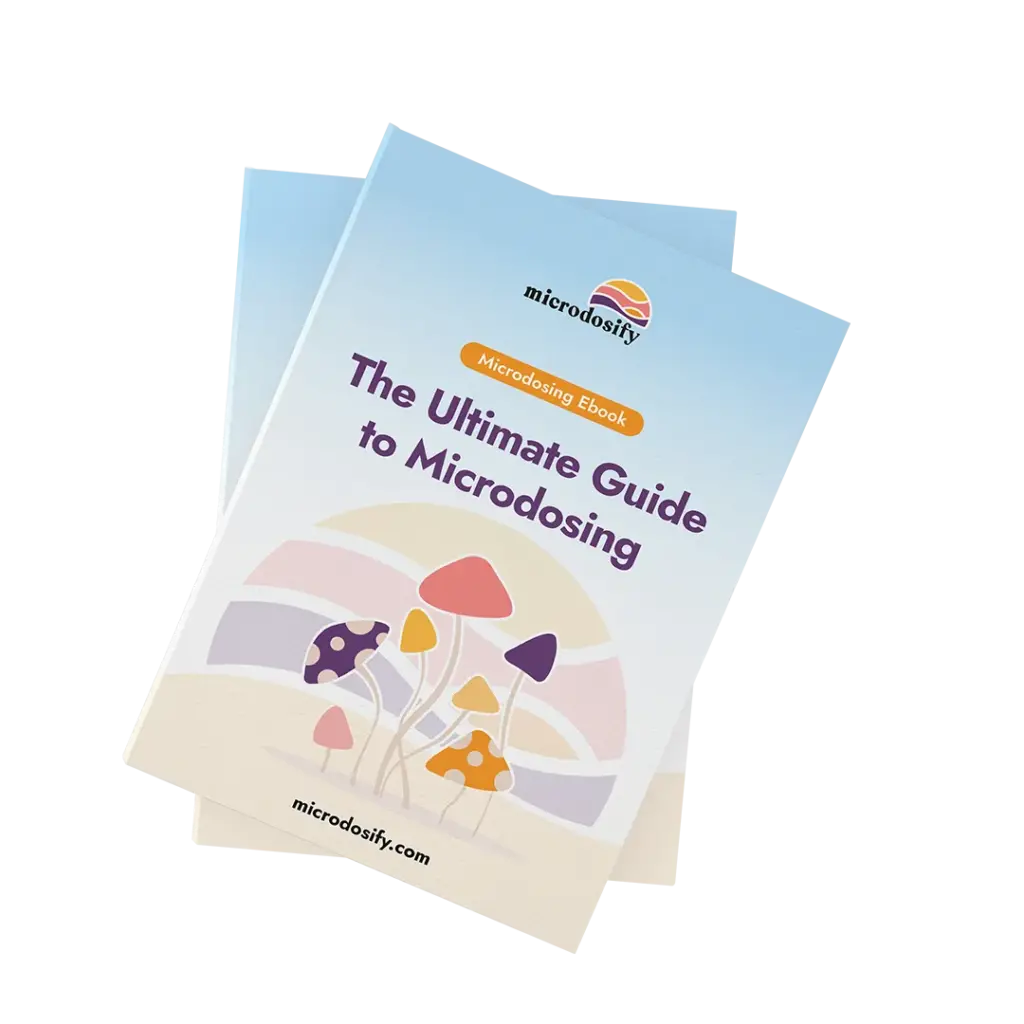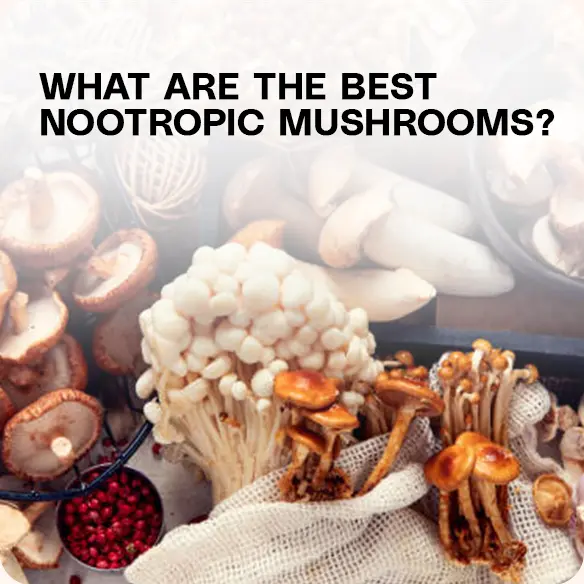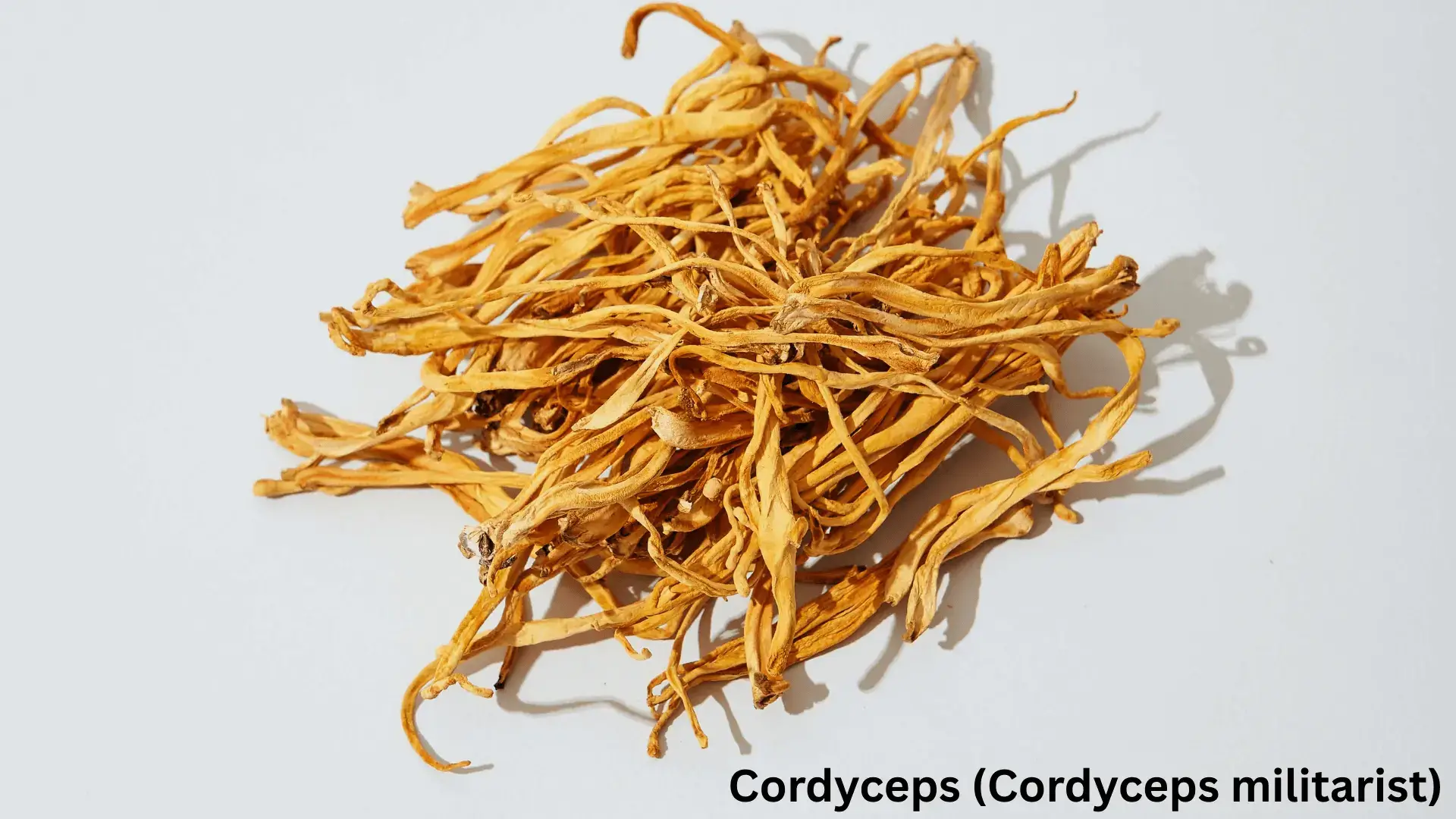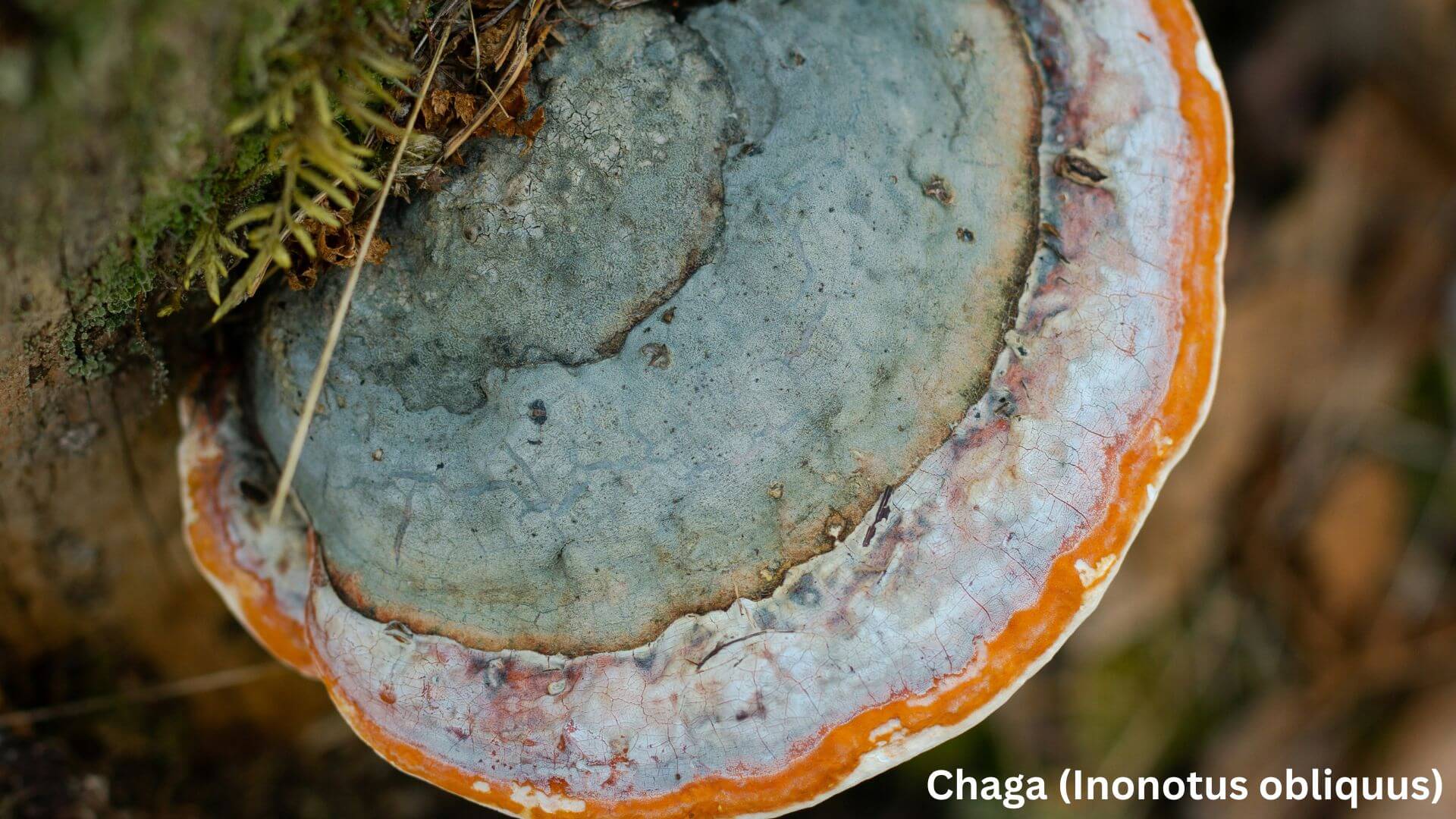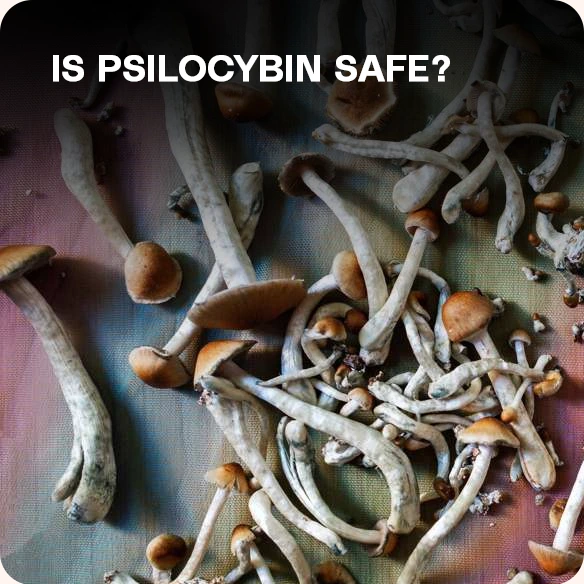Nootropic mushrooms are natural supplements that might help with brain function and health.
This article will look at some popular types, like Lion’s Mane and Reishi, and explain how they can benefit you.
You’ll learn how to add them to your daily life, whether through capsules, gummies, teas, extracts, or in your cooking.
If you want to know how these mushrooms could help with focus, mental clarity, and well-being, keep reading!
Also, check our guide on how to microdose.
Key Takeaways:
- The best nootropic mushrooms are Lion’s Mane, Cordyceps, Chaga, Maitake, Oyster, Reishi, and Tremella.
- These mushrooms may help with brain function, support brain cells, and boost overall health.
- When picking the right one, consider which form works best for your routine and how to add them to your diet.
What are Nootropic Mushrooms?
Nootropic mushrooms are dietary supplements made from nutrient-rich mushrooms that support brain function.
These mushrooms, known as functional mushrooms, contain compounds that help with mental clarity, reduce brain fog, and protect brain cells. People take them to improve focus, memory, and overall cognitive health.
For more tips, check out our blog on how psilocybin rewires our brain.
What Are The Best Nootropic Mushrooms?
The best nootropic mushrooms are the ones that help your brain the most.
Out of over 270 edible mushrooms studied, these six are the best for improving focus and memory.
Lion’s Mane (Hericium erinaceu)
Lion’s Mane is a mushroom known for helping brain health and has been used for centuries in Chinese medicine. It grows on hardwood trees, especially in North America, Europe, and Asia. You’ll often find it growing on dead or dying trees in late summer and fall.

What makes Lion’s Mane special is how it supports brain health. It contains hericenones and erinacines, which help your brain grow new cells. These compounds boost the Nerve Growth Factor (NGF), essential for repairing and maintaining brain cells.
This can help improve memory and focus and even protect the brain from aging. If you’re looking for an easy way to experience these benefits, try our focus-enhancing psilocybin capsules formulated for memory, clarity, and cognitive performance.
One study, “Improvement of Cognitive Functions by Oral Intake of Hericium erinaceus,” showed that older adults who took Lion’s Mane for 16 weeks had better thinking and memory.
The recommended dosage for Lion’s Mane is 500 mg to 3000 mg daily.
Cordyceps (Cordyceps militarist)
Cordyceps is known as the “Olympic mushroom” because of its popularity among athletes. It’s used to boost cardiovascular health and athletic performance.
Cordyceps mushrooms are small, orange, and have long stalks with button-like caps. They are rich in adenosine, a compound that supports respiratory function and helps the body absorb more oxygen. This improved oxygen absorption helps brain cells and muscles perform better, fueling the body for better function.
For best results, taking 4 grams of Cordyceps daily for at least three weeks is recommended to experience its full benefits for both energy and mental clarity.
Chaga (Inonotus obliquus)
Chaga is a unique mushroom that forms on birch trees, especially in cold regions like northern Canada, Alaska, Siberia, and Northern Europe. It’s not technically a mushroom, but a canker that has been used for centuries in traditional medicine to support the immune system, reduce inflammation, and protect the liver.
It’s rich in antioxidants, which help the body stay healthy. Studies have shown that Chaga may also help with learning and memory by boosting acetylcholine, an important brain chemical. It’s also known for its anti-tumor, antiviral, and pain-relieving properties.
Chaga is a great choice if you’re looking for a natural way to support your body’s defenses and keep your health in check.
The recommended dosage for Chaga is 500 mg to 1000 mg per day.
Maitake (Grifola frondosa)
Maitake is a mushroom known for boosting immune health and helping control blood sugar. Its name comes from the Japanese words “Mai” (dance) and “take” (mushroom).

People take it to help with cancer treatment, chronic fatigue, hepatitis, high blood pressure, and cholesterol.
Maitake is also known for helping with depression by improving how the AMPA receptors work. When these receptors work properly, they help your brain process information better. Low levels of AMPA receptors are sometimes linked to depression and other mental health issues.
For best results, the recommended dosage of Maitake extract is 250–500 mg per day.
Oyster (Pleurotus ostreatus)
Oyster mushrooms are popular not just for their flavor but for their health benefits, too. Originating in Asia and first cultivated during World War I in Germany, these mushrooms are now one of the most commonly grown worldwide.

They’re rich in protein, making them a great meat alternative for vegetarians, and they contain essential nutrients like B vitamins, Vitamin D, and minerals.
Oyster mushrooms help boost the immune system and have antioxidant properties that reduce stress on the body. They’re also known to be anti-inflammatory and may help fight off bacteria and viruses.
Adding oyster mushrooms to your meals a few times a week can provide significant health benefits while adding a delicious flavor to your dishes.
The recommended dosage for Oyster mushrooms is 1000 mg to 2000 mg per day.
Reishi (Ganoderma lucidum)
Reishi, often called the ‘mushroom of immortality,’ has been used for over 2,000 years in traditional Chinese medicine. It’s known for its neuroprotective properties, which help support the brain and nervous system.

Reishi helps support healthy sleep cycles by calming the body’s natural stress response. Inflammation can make sleeping harder, and Reishi works to reduce that.
It also helps manage stress, so you can feel more relaxed and focused during the day and calm your mind for better rest at night.
For best results, the recommended dosage for Reishi mushrooms is 1000 mg to 2000 mg per day.
What Are The Benefits of the Nootropic Mushrooms?
Nootropic mushrooms have a lot of benefits. Here’s some of them:
1. Cognitive Enhancement
- Memory Boost: Eating mushrooms like lion’s mane can help you remember things better.
- Increased Focus: They can sharpen your attention and help you concentrate.
- Mental Clarity: These mushrooms reduce brain fog, making it easier to think clearly and make decisions. To dive deeper into how microdosing supports focus and study performance, read our article on how to improve attention span and cognitive focus.
2. Neuroprotective Properties
- Brain Health: Certain compounds in mushrooms, especially lion’s mane, may help create new brain cells.
- Combating Cognitive Decline: Some studies suggest these mushrooms can slow down brain diseases.
3. Mood Regulation
- Stress Reduction: Mushrooms like reishi help your body manage stress better.
- Improved Sleep: Reishi is known for promoting better sleep.
4. Antioxidant Properties
- Fighting Oxidative Stress: Chaga mushrooms are full of antioxidants that help protect your body.
5. Well-being
- Immune Support: Many nootropic mushrooms can also support a strong immune system.
- Adaptogenic Properties: Mushrooms like reishi help your body adapt to stress.
Adding nootropic mushrooms to your routine can boost your brainpower while supporting your overall health!
How To Choose Between The Best?
Choosing the right nootropic mushrooms can be tricky with so many options out there. Here are some tips to help you pick the best ones:
- Quality Matters: Look for high-quality mushroom gummies, capsules or extracts. Check where they come from and how they’re made.
- Know the Benefits: Different mushrooms offer different benefits. Think about what you want—better focus, memory, or stress relief. To compare blends specifically designed for productivity, calm, and creativity, check out our product comparison of Calm, Create, and Focus
- Understand the Forms: Familiarize yourself with the different types of mushroom products available. This will help you make choices that fit your health goals.
By considering these, you can find the right nootropic mushrooms that suit your needs!
Also, check out our blog on what is psilocybin therapy.
How to Add Nootropic Mushrooms To Your Diet?
Adding nootropic mushrooms to your diet is simple and can be enjoyable! There are lots of easy ways to do it, whether you’re using supplements or adding them to your favorite meals and drinks.
Capsules or Powders
Using mushroom capsules or powders is super convenient. Capsules are great if you want a set dose every time, while powders give you the freedom to add as much or as little as you like to your food or drinks.
- Capsules: Easy for a consistent dose every time.
- Powders: You can mix them into smoothies or drinks for flexibility.
Both forms offer the benefits of mushrooms like Lion’s Mane or Reishi. Capsules are perfect for when you’re on the go, and powders can easily blend into your favorite drinks for faster absorption.
For those who want a simple start, our guided microdosing program makes it easy to build a consistent and healthy habit.
Tea or Coffee Blends
Mushroom tea and coffee are another tasty way to enjoy nootropic mushrooms. Combining mushrooms like Chaga or Lion’s Mane with your daily tea or coffee adds a healthy boost to your routine.
- Mushroom Tea: Steep dried mushrooms in hot water for 10-15 minutes.
- Lion’s Mane Latte: Mix Lion’s Mane powder with your brewed coffee and milk.
Try a simple Chaga Mushroom Tea by simmering 1 tablespoon of Chaga chunks in 4 cups of water for an hour, then strain and enjoy. Or blend 1 teaspoon of Lion’s Mane powder into a cup of coffee for a Lion’s Mane Latte!
Smoothies or Juices
Adding Cordyceps to your smoothies or juices is an excellent way to boost energy and endurance. Cordyceps blend well with fruits and plant-based milk, making them a great addition to your morning smoothie.
Blend your favorite fruits with plant-based milk, add a scoop of your chosen mushroom powder, and you’ve got a brain-boosting, energizing smoothie!
Cooking with Mushrooms
Cooking with nootropic mushrooms can be fun and delicious. Whether you’re using fresh, dried, or powdered mushrooms, you can add them to soups, stir-fries, or even sprinkle them over your dishes.
Conclusion
Incorporating nootropic mushrooms into your daily routine, whether through food or supplements, can improve mental clarity and overall well-being. Mushrooms like Lion’s Mane, Cordyceps, and Reishi each provide unique benefits, from boosting focus to reducing stress. Adding these mushrooms to your diet is an easy and natural way to support your brain health and improve how you feel every day.
For more interesting information, check out our blog on nootropic vs magic mushrooms to learn the differences between functional and psychedelic effects.
Frequently Asked Questions
1. Do nootropic mushrooms help with stress?
Yes, mushrooms like Reishi and Lion’s Mane are known to help reduce stress and anxiety.
2. Can nootropic mushrooms improve focus?
Yes, Lion’s Mane and Cordyceps are popular for improving focus and concentration.
3. Are nootropic mushrooms safe for daily use?
Yes, they are safe for daily use when taken at recommended doses.
4. How long does it take to see the benefits?
You may start noticing benefits in focus and mood after a few days or weeks of regular use.
5. Can I cook with nootropic mushroom powders?
Yes, you can add mushroom powders to meals like soups, stir-fries, or even baked goods.
6. Are nootropic mushrooms natural?
Yes, they are natural and have been used for centuries for their health benefits.
